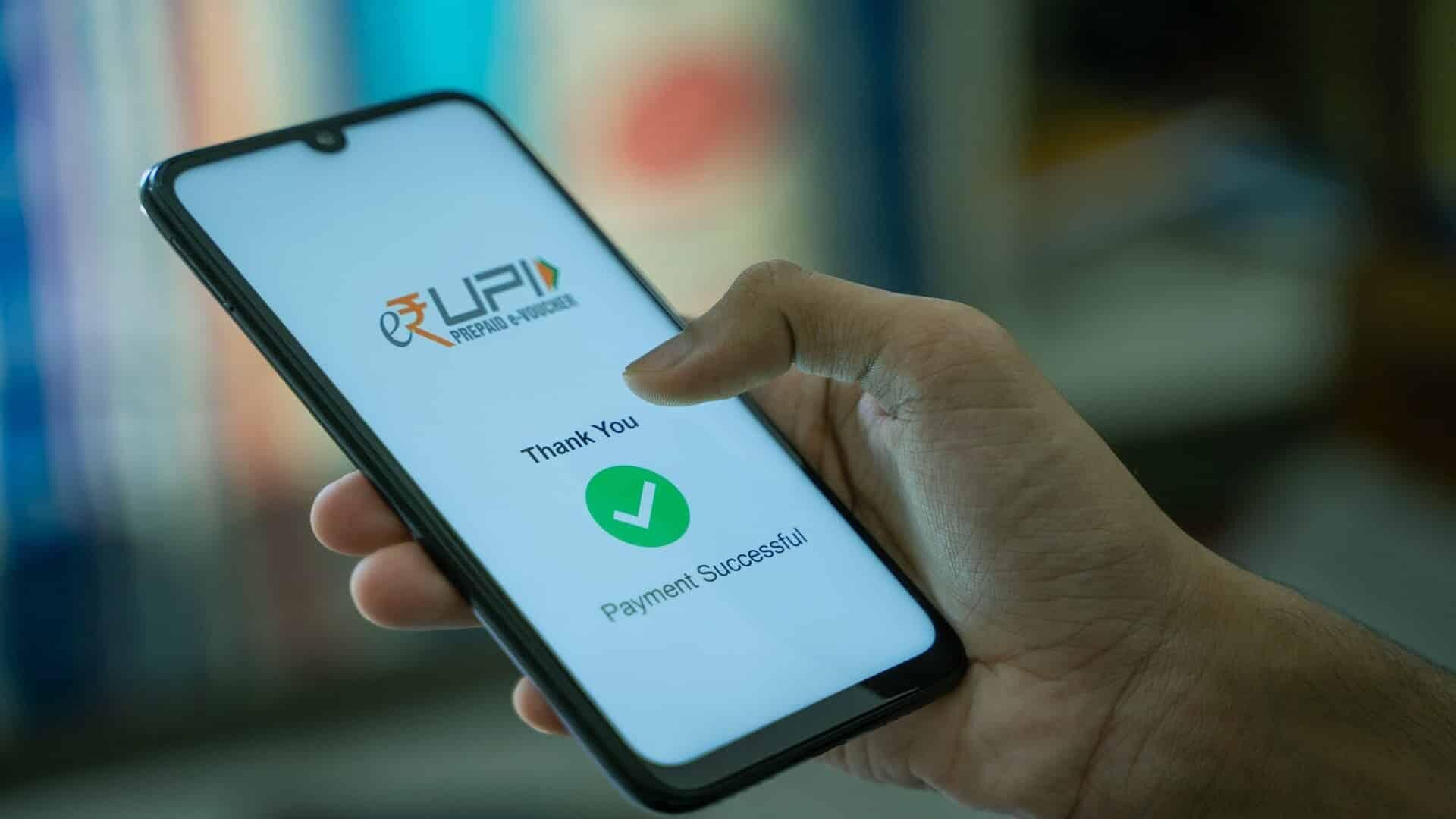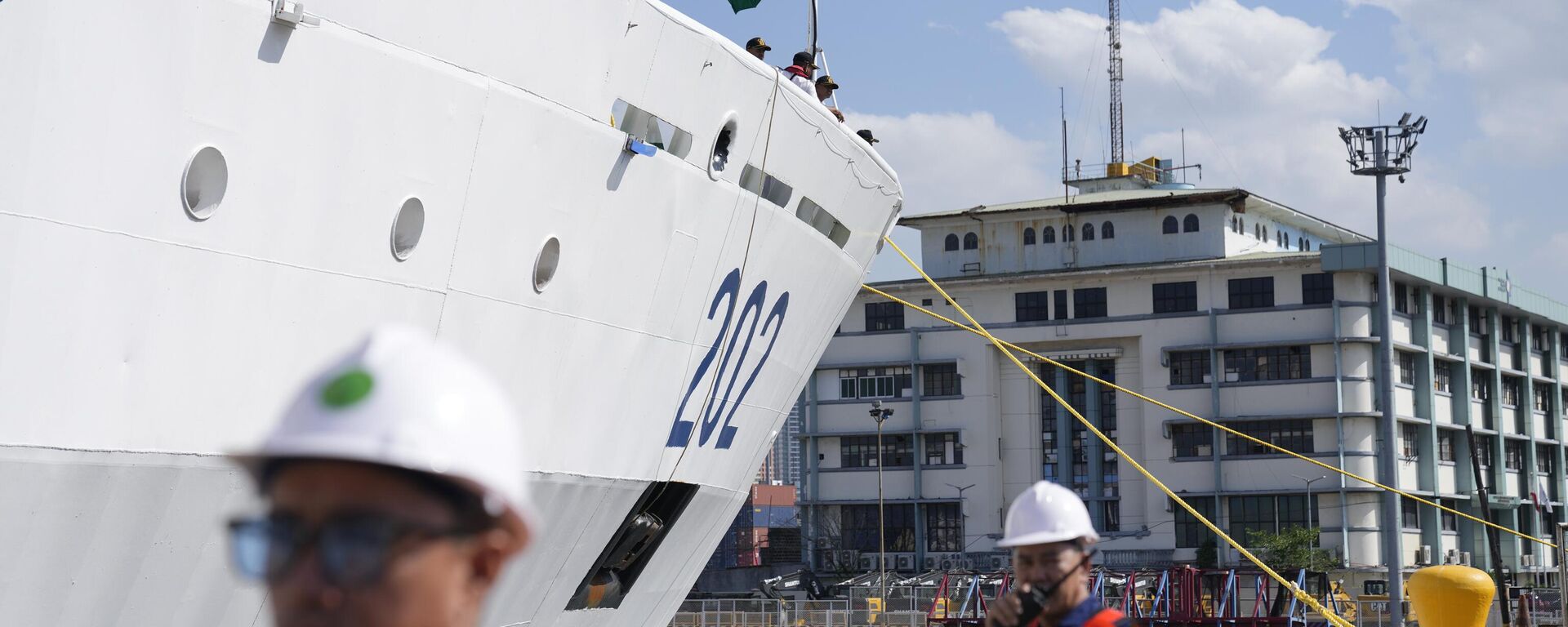https://sputniknews.in/20240615/de-dollarisation-india-singapore-fintech-corridor-to-heighten-local-currency-settlements-7625694.html
De-Dollarisation: India-Singapore Fintech Corridor to Heighten Local Currency Settlements
De-Dollarisation: India-Singapore Fintech Corridor to Heighten Local Currency Settlements
Sputnik India
There is a substantial promise for expanded fintech connections between Singapore and India. This could enable local currency settlements and smoother... 15.06.2024, Sputnik India
2024-06-15T15:06+0530
2024-06-15T15:06+0530
2024-06-15T15:06+0530
narendra modi
india
singapore
southeast asia
asean
ministry of external affairs (mea)
ministry of defence (mod)
government of india
malaysia
south asia
https://cdn1.img.sputniknews.in/img/07e7/02/15/954774_0:0:1920:1080_1920x0_80_0_0_d814d32b1c3f3503c880a2b5ae4cfdb7.jpg
Singapore's Prime Minister Lawrence Wong has sent a letter to Narendra Modi extending congratulations on his reappointment as Indian prime minister, noting Modi's role in guiding India's significant transformation, and expressed his willingness to collaborate to enhance bilateral relations.Since the signing of the Comprehensive Economic Cooperation Agreement (CECA) in 2005, India and Singapore have witnessed a remarkable surge in bilateral trade.The historic agreement paved the way for a significant transformation, with trade volume surging to an impressive $35.6 billion by the fiscal year 2022-23, highlighting the effectiveness of the strategic partnership.The debut of the UPI-PayNow system linkage by India and Singapore in early 2023 highlighted their collaborative efforts. Notably, Singapore became the first partner in Southeast Asia with whom India unveiled a cross-border person-to-person online payment platform.The expert stated that Singapore's proactive approach in negotiating digital technology cooperation agreements underscores “the importance of integrating uninterrupted payment systems, such as QR code-enabled transactions, into bilateral and multilateral frameworks”.The potential of the UPI and Singapore payment system linkage “extends beyond conventional trade finance to encompass transformative initiatives like the digital economy Framework Agreement”, Prabir De added.Meanwhile, Dr Temjenmeren Ao, associate fellow at the Manohar Parrikar Institute for Defence Studies and Analyses (IDSA), told Sputnik India that “India is also exploring similar collaborations in terms of UPI-PayNow system linkage with Malaysia expanding the scope beyond Singapore to other parts of Southeast Asia".The envisioned India-Singapore fintech corridor “is poised to revolutionise the regional trade and investment landscape, offering a fertile ground for Indian tech companies and startups to thrive”, he noted.Fostering Collaboration in Skill Development and R&DAs bilateral cooperation evolves, “there's an opportunity to leverage Singapore's membership in ASEAN and other regional forums to regionalise technological cooperation, thereby enhancing India's strategic position in Southeast Asia and beyond”, he argued.India and Singapore should emphasise collaboration in skill development centres and university research and development, which, according to Temjenmeren Ao, “facilitates capacity building for employment-ready future generations, particularly in service industries and niche sectors. Sharing educational curriculum and expertise enhances outcomes and fosters a culture of knowledge exchange”.Supply Chain Disruptions: Growing Concern in India & Southeast AsiaTemjenmeren Ao pointed out that geopolitical tensions, spanning from the US-China rivalry to conflicts such as the one in Ukraine and unfolding events in the Middle East, amplify Southeast Asia's concerns, given its reliance on oil and energy resources.“Together, these elements compound the complexity of the economic landscape, presenting formidable challenges for the region to navigate”, he noted.Emphasising “economic corridors alongside physical infrastructure is key to maximising connectivity benefits, fostering socio-economic growth, and enhancing India-Singapore relations”, he said.While challenges persist, particularly in the realm of investment policies and transparency, Prabir De specified that “the collaborative efforts between India and Singapore in fostering clean and transparent projects hold the key to unlocking mutual benefits in terms of employment, trade, and financial connectivity”.“Encouraging more such initiatives with robust interlinkages will undoubtedly contribute to the long-term prosperity and growth of both nations”, he advised.
https://sputniknews.in/20240326/icg-vessel-bolsters-pollution-control-in-manila-bay-amidst-asean-mission-6948372.html
india
singapore
southeast asia
asean
malaysia
south asia
vietnam
maldives
the philippines
indo-pacific
Sputnik India
feedback.hindi@sputniknews.com
+74956456601
MIA „Rossiya Segodnya“
2024
Swapna Nair
https://cdn1.img.sputniknews.in/img/07e7/09/12/4320104_0:0:681:681_100x100_80_0_0_ca8a7d4d582609272840ffdd1cde7278.jpg
Swapna Nair
https://cdn1.img.sputniknews.in/img/07e7/09/12/4320104_0:0:681:681_100x100_80_0_0_ca8a7d4d582609272840ffdd1cde7278.jpg
News
en_IN
Sputnik India
feedback.hindi@sputniknews.com
+74956456601
MIA „Rossiya Segodnya“
Sputnik India
feedback.hindi@sputniknews.com
+74956456601
MIA „Rossiya Segodnya“
Swapna Nair
https://cdn1.img.sputniknews.in/img/07e7/09/12/4320104_0:0:681:681_100x100_80_0_0_ca8a7d4d582609272840ffdd1cde7278.jpg
singapore's prime minister, lawrence wong , narendra modi, prime minister, india, bilateral relations, comprehensive economic cooperation agreement (ceca), india, singapore, bilateral trade, significant transformation trade volume, upi-paynow system linkage, tradetrust framework, singapore, southeast asian region, india and singapore, tech services trade, fintech, and financial services collaboration, dr prabir de, coordinator of asean-india centre (aic) at research and information system for developing countries (ris), upi-paynow system, india, singapore, first partner, india, cross-border person-to-person online payment platform, digital technology cooperation agreements, qr code-enabled transactions, supply chain disruptions, demand fluctuations, india, singapore, southeast asia, economic woes, upi, singapore payment system, conventional trade finance, encompass transformative initiatives, digital economy framework agreement, india, fintech, singapore, india, asean nations, upi-paynow system linkage, malaysia, electronic bills of lading, blockchain and artificial intelligence, trade between, india-singapore fintech corridor, empowering future generations, asean, china, skill development centres
singapore's prime minister, lawrence wong , narendra modi, prime minister, india, bilateral relations, comprehensive economic cooperation agreement (ceca), india, singapore, bilateral trade, significant transformation trade volume, upi-paynow system linkage, tradetrust framework, singapore, southeast asian region, india and singapore, tech services trade, fintech, and financial services collaboration, dr prabir de, coordinator of asean-india centre (aic) at research and information system for developing countries (ris), upi-paynow system, india, singapore, first partner, india, cross-border person-to-person online payment platform, digital technology cooperation agreements, qr code-enabled transactions, supply chain disruptions, demand fluctuations, india, singapore, southeast asia, economic woes, upi, singapore payment system, conventional trade finance, encompass transformative initiatives, digital economy framework agreement, india, fintech, singapore, india, asean nations, upi-paynow system linkage, malaysia, electronic bills of lading, blockchain and artificial intelligence, trade between, india-singapore fintech corridor, empowering future generations, asean, china, skill development centres
De-Dollarisation: India-Singapore Fintech Corridor to Heighten Local Currency Settlements
There is a substantial promise for expanded fintech connections between Singapore and India. This could enable local currency settlements and smoother transaction processes, acting as a conduit for India to trade with all ASEAN nations, according to experts.
Singapore's Prime Minister Lawrence Wong has sent a letter to Narendra Modi extending congratulations on his reappointment as Indian prime minister, noting Modi's role in guiding India's significant transformation, and expressed his willingness to collaborate to enhance bilateral relations.
Since the signing of the Comprehensive Economic Cooperation Agreement (CECA) in 2005, India and Singapore have witnessed a remarkable surge in bilateral trade.
The historic agreement paved the way for a significant transformation, with trade volume surging to an impressive $35.6 billion by the fiscal year 2022-23, highlighting the effectiveness of the strategic partnership.
“The ground-breaking UPI-PayNow system linkage and the innovative TradeTrust Framework are garnering widespread acclaim, not just within the Singapore or Southeast Asian region but across the globe. These advancements in financial technology are particularly noteworthy for travellers between India and Singapore, ushering in a new era of seamless tech services trade, fintech, and financial services collaboration”, Dr Prabir De, coordinator of the ASEAN-India Centre (AIC) at the Research and Information System for Developing Countries (RIS), told Sputnik India.
The debut of the UPI-PayNow system linkage by India and Singapore in early 2023 highlighted their collaborative efforts. Notably, Singapore became the first partner in Southeast Asia with whom India unveiled a cross-border person-to-person online payment platform.
The expert stated that Singapore's proactive approach in negotiating digital technology cooperation agreements underscores “the importance of integrating
uninterrupted payment systems, such as QR code-enabled transactions, into bilateral and multilateral frameworks”.
“The stagnant global trade situation tangled further by persistent supply chain disruptions and unresolved demand fluctuations. Concurrently, escalating youth unemployment, especially prevalent in India, Singapore, and Southeast Asia, adds urgency to the region's economic woes”.
The potential of the UPI and Singapore payment system linkage “extends beyond conventional trade finance to encompass transformative initiatives like the digital economy Framework Agreement”, Prabir De added.
While India is yet to fully embrace the agreement, there is immense potential for deeper fintech linkages between Singapore and India, according to the analyst, “paving the way for local currency settlements and streamlined transaction processes, ultimately serving as a gateway for India to engage in trade with all ASEAN nations”.
Meanwhile, Dr Temjenmeren Ao, associate fellow at the Manohar Parrikar Institute for Defence Studies and Analyses (IDSA), told Sputnik India that “India is also exploring similar collaborations in terms of UPI-PayNow system linkage with Malaysia expanding the scope beyond Singapore to other parts of Southeast Asia".
"The introduction of innovative solutions like electronic Bills of Lading, powered by blockchain and artificial intelligence holds promise for enhancing investment flows and facilitating trade between the two nations”, Prabir De insisted.
The envisioned India-Singapore fintech corridor “is poised to revolutionise the regional trade and investment landscape, offering a fertile ground for Indian tech companies and startups to thrive”, he noted.
Fostering Collaboration in Skill Development and R&D
As bilateral cooperation evolves, “there's an opportunity to leverage Singapore's membership in ASEAN and other regional forums to regionalise technological cooperation, thereby enhancing India's strategic position in Southeast Asia and beyond”, he argued.
Temjenmeren Ao also emphasised that developing a robust fintech ecosystem, “is crucial for India to deepen its economic ties with Singapore, especially considering the competitive landscape dominated by China and other traditional partners”.
India and Singapore should emphasise collaboration in skill development centres and university research and development, which, according to Temjenmeren Ao, “facilitates capacity building for employment-ready future generations, particularly in service industries and niche sectors. Sharing educational curriculum and expertise enhances outcomes and fosters a culture of knowledge exchange”.
Additionally, collaboration "in pharmaceutical development presents a significant opportunity for both sides to leverage India's expertise in pharmaceutical production. By pooling knowledge and resources, advancements in medicine can be accelerated", he advised.
Supply Chain Disruptions: Growing Concern in India & Southeast Asia
Temjenmeren Ao pointed out that geopolitical tensions, spanning from the US-China rivalry to conflicts such as the one in Ukraine and unfolding events in the Middle East, amplify
Southeast Asia's concerns, given its reliance on oil and energy resources.
“Together, these elements compound the complexity of the economic landscape, presenting formidable challenges for the region to navigate”, he noted.
“India is advocating for the swift completion and expansion of the India-Myanmar-Thailand Trilateral Highway to boost regional connectivity. Yet, ongoing geopolitical issues, such as security situation at border of Myanmar, have impeded progress”, he indicated.
Emphasising “economic corridors alongside physical infrastructure is key to maximising connectivity benefits, fostering socio-economic growth, and enhancing India-Singapore relations”, he said.
While challenges persist, particularly in the realm of investment policies and transparency, Prabir De specified that “the collaborative efforts between India and Singapore in fostering clean and transparent projects hold the key to unlocking mutual benefits in terms of employment, trade, and financial connectivity”.
“Encouraging more such initiatives with
robust interlinkages will undoubtedly contribute to the long-term prosperity and growth of both nations”, he advised.



